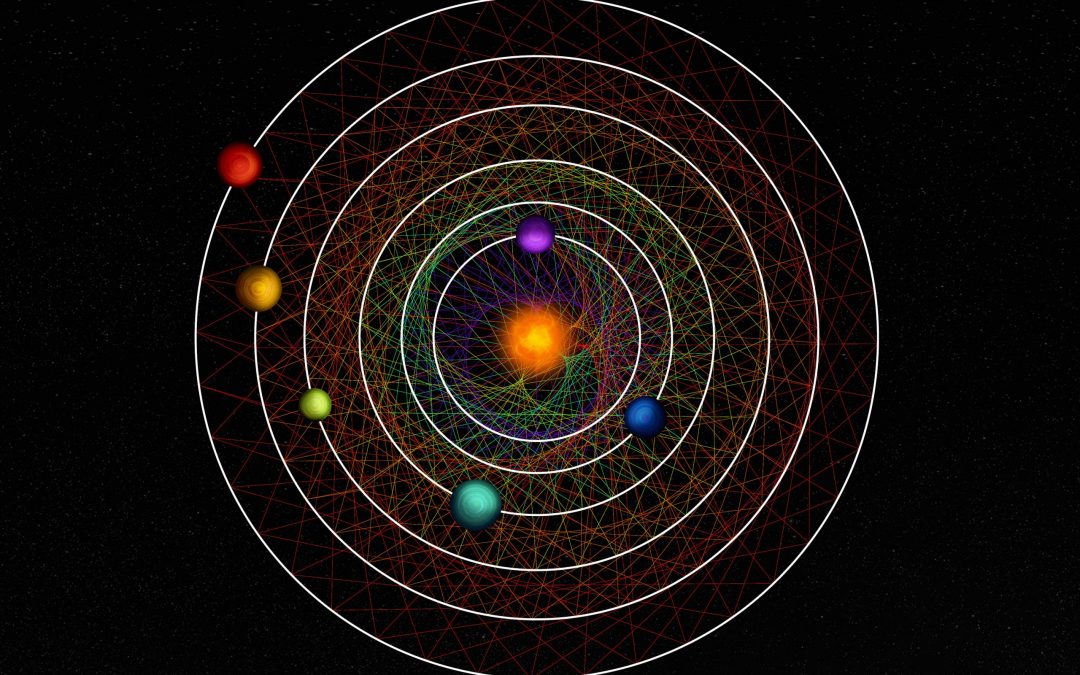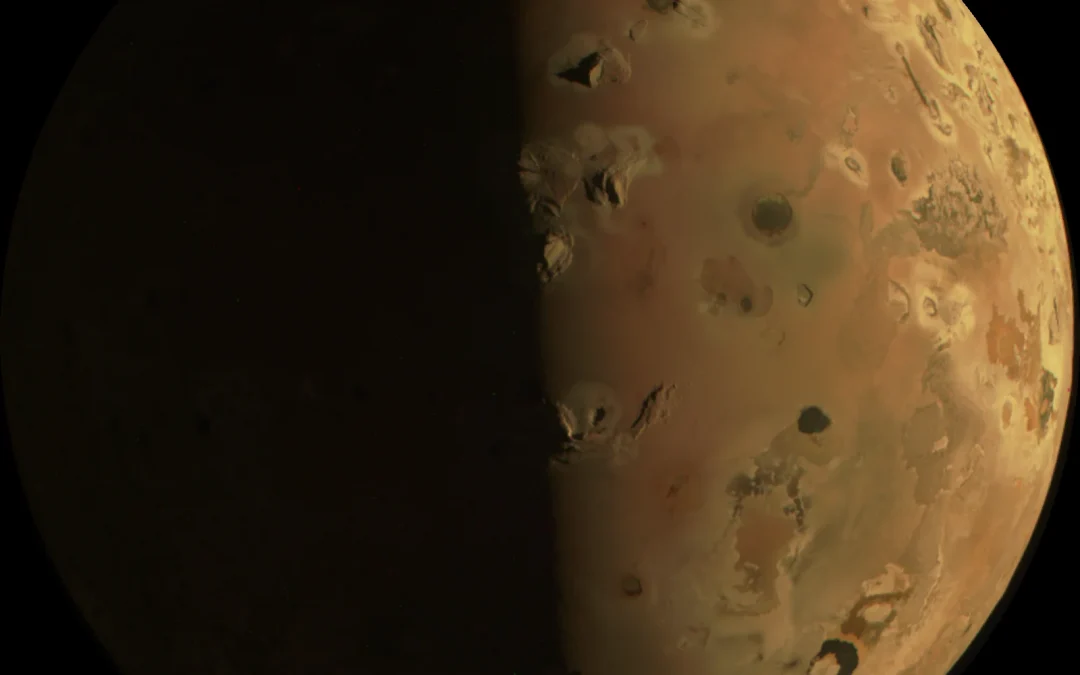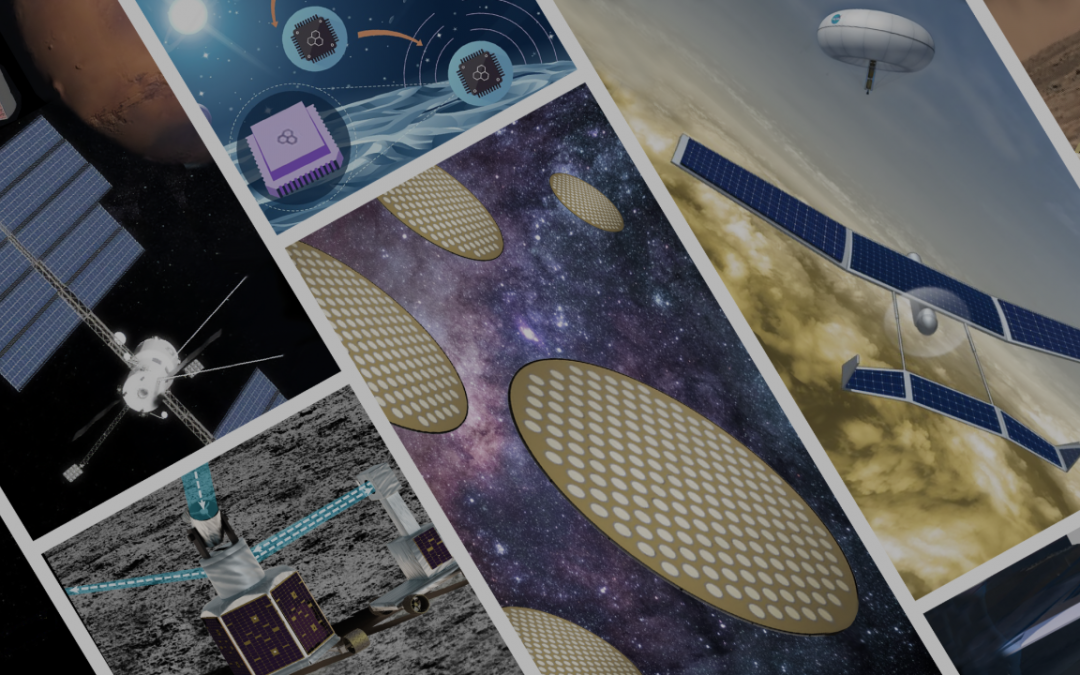Several of the planets and moons in the Solar System are in orbital resonance, orbiting in a geometric lockstep. And not just the Solar System, astronomers have found the same resonances in other star systems.



Fraser Cain
Universe Today

Dr. Pamela Gay
CosmoQuest

Several of the planets and moons in the Solar System are in orbital resonance, orbiting in a geometric lockstep. And not just the Solar System, astronomers have found the same resonances in other star systems.

Last week was one of the most exciting meetings we’ve seen from the Lunar and Planetary Science Conference, with hundreds of announcements and discoveries from various missions. One theme kept coming up, the Solar System is more volcanically active than we thought. Today, we’ll explore volcanism on other worlds.

You’ve probably heard that the best kind of science is peer-reviewed research published in a prestigious journal. But peer review has problems of its own. We’ll talk about that today.

NASA works on many missions using tried and true technology, but they also invest in creative ideas that could drive the future of space exploration. It’s called NASA’s Innovative Advanced Concepts or NIAC.
Recent Episodes
https://youtu.be/VxGKzE7bTvs The Moon is about to become a very busy place, with multiple countries and private companies planning missions in the next few years. It's been decades since the Outer Space Treaty was negotiated. It's time for the Artemis Accords....
https://youtu.be/MkrxGG32Ac4 As scientists continue to explore the Earth, they're discovering life surviving and even thriving in extreme environments. What hints can this give us about what we might find as we search for life on other worlds? Download MP3 | Show...
https://youtu.be/ZK_sS56EmMY As astronomers are finding even more new extrasolar planets, they're starting to discover entirely new categories. There are classes of planets out there that we just don't have any analog here in the Solar System. Let's talk about them....
https://youtu.be/n4x3XyJtgXQ With a sample of asteroid Bennu firmly inside OSIRIS-REx's return capsule, it's time to bring this treasure home so scientists can study the composition and history of the space rock. But it's not the only sample return mission out there,...
https://youtu.be/fCxkDWINq1I This year's Nobel Prize in Physics was awarded to three brilliant researchers who worked out some of the secrets of black holes. Today we're going to talk about the chain of discoveries that led to this award. Download MP3 | Show Notes |...
https://youtu.be/prdjF4YmAas (Sorry for the delay everyone. It has been a week.) Did you hear the news? Nobel Prizes for black holes. We know there are stellar mass black holes and supermassive black holes, but how do you get from one to the other? How do black holes...
https://youtu.be/qm5q4aRwtNQ Don't ever accuse us of not comprehensively covering every kind of exploding star. This week we gather up all the leftover ways that stars partially or fully explode, or don't. Probably. Enjoy. Download MP3 | Show Notes | Transcript Show...
https://youtu.be/09NzMzt8yXE You'd think that a white dwarf star is the end of a stellar life. It's all downhill from there. A long, slow cool down towards the end of everything. But in some situations, even dead stars can get exciting again, briefly becoming some of...
https://youtu.be/cIcPtF1bN-U I’ve got some bad news for you: stars die. At some point in the next few billion years or so, our Sun is going to start heating up, using up all the fuel in its core, and then eventually die, becoming a white dwarf. It will then slowly...
https://youtu.be/kgaUY0XcxZI Have you heard the big news? Of course you have, evidence of phosphine on Venus which could be a biosignature of life on our evil twin planet. There have been a lot of surprising stories about Venus, so let's get you all caught up....
https://youtu.be/vuoIlAvTfz0 Every two years or so, Mars lines up nicely with the Earth. It only takes two minutes to communicate with rovers, you can see the polar ice caps in a small telescope, and it's the best time to send spacecraft to the red planet. Download...
https://youtu.be/bxAZTyr-DXk It's time, once again, for Astronomy Cast to go on hiatus. You've got a couple of months on your own to explore the night sky. Before we say goodbye, though, we'd like to make a few suggestions. Download MP3 | Show Notes | Transcript...
https://youtu.be/-jvklCr8btg As amateur astronomers, we curse the Moon every month. Seriously, why doesn't someone get rid of that thing? This week, something occurred to us. What if we actually pointed our telescopes at the Moon? What would we see? Download MP3 |...
https://youtu.be/-ttZy7UXp6s We imagine the asteroid belt as the place where all the rocks hang out in the Solar System, but there are two huge bands of asteroids that orbit the Sun with Jupiter called the Trojans. And soon, we might actually get a chance to see them...
https://youtu.be/Q7uWOp7kxwU Not only have astronomers discovered thousands of exoplanets, but they're even starting to study the atmospheres of worlds thousands of light-years away. What can we learn about these other worlds, and maybe even signs of life. Download...
https://youtu.be/Scs9NHSSNu0 We're all looking forward to the next generation of exoplanetary research, where we get to see pictures of planets directly. But astronomers are already making great strides in directly observing newly forming planets, helping us...
https://youtu.be/lcbALEjp0k4 We're familiar with regular binary stars. Two stars orbiting each other. Simple. Of course, the Universe has come up with every combination of things orbiting other things. And this week we look at the extreme version of this. Download MP3...
https://youtu.be/B3MFSCdyNHE Discovering comets is one of the fields that amateurs can still make a regular contribution to astronomy. But more and more telescopes are getting found by spacecraft, automated systems and machine learning. This week, we'll talk about how...
https://youtu.be/QFeuXhIOxNI Every year, more and more people are making their way to space. Some private citizens have already gotten their astronaut wings, paying for a trip to space out of their own pocket. What are the ethical implications of this as the costs of...
https://youtu.be/Ud7BCycI820 The key to surviving in space will be learning how to live off the land. Instead of carrying all your fuel, water, and other resources from Earth, extract them locally at your destination. It's called In Situ Resource Utilization and if we...